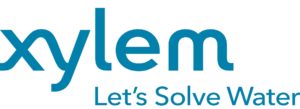Smart Sewer Technology Satisfies EPA Consent Decree

City of South Bend, Indiana, USA (Image source: Xylem, Inc.)
The US Environmental Protection Authority (EPA) and the US Department of Justice (DoJ) have now formally endorsed the City’s long-term sewer plan, based on the advanced technology. The EPA, the DoJ and the City of South Bend originally entered into a consent decree in 2012 in response to the City’s aging sewer infrastructure that frequently overflowed, discharging millions of gallons of sewage and stormwater into the landmark St. Joseph River each year. The plan to address the problem was set to cost South Bend ratepayers $713 million in capital improvements. But the parties have now announced they are amending the original agreement with a revised plan based on “smart sewer” technology. The City’s new approach, using Xylem’s wastewater network optimization solution, provides “better protection at lower cost,” according to the EPA.
“We are so pleased to be partnering with the visionary team at the City of South Bend, providing the digital innovation and insights to make this transformation possible,” said Patrick Decker, Xylem’s CEO. “Their hard work has now resulted in a ground-breaking outcome which will save every family in the city thousands of dollars while enabling them to enjoy a more beautiful St. Joseph River, and have access to cleaner water more affordably.”
“We will spend 400 million dollars less than originally estimated, achieving greater environmental benefit and level of service, just by optimizing the existing system in the ground,” said Eric Horvath, Director of Public Works for the City of South Bend.
“捕获和使用的数据用于像是下水道d strange,” Decker continued. “But our water infrastructure increasingly has to deal with sudden and extreme weather events, while meeting regulatory requirements and protecting our communities. South Bend is among a growing number of cities modernizing their water systems with advanced digital solutions to make their communities more resilient. We are proud to serve them in this journey.”
The City of South Bend’s revised plan consists of a monitoring system of more than 165 sensors and software agents located throughout the City’s urban watershed, managing 13 automated gates and valves. Real-time decision support technology enables the network to react to sudden wet weather events and avoid flooding by quickly moving flows to under-utilized parts of the network. Operators receive overflow information via control room screens, smartphones and tablets – giving them the ability to override the system at any time, if needed.
The result has been a dramatic reduction in combined sewer overflow volumes (roughly 1 billion gallons per year), and a more-than 50% drop in E. coli concentration in the St. Joseph River. In addition to the capital works savings, the City is also benefiting from $1.5 million per year in reduced operations and maintenance costs.
The City has implemented its new control plan based on the Xylem solution working alongside deployment partners American Structurepoint, LimnoTech, and Stantec.
Source:Xylem Inc.






